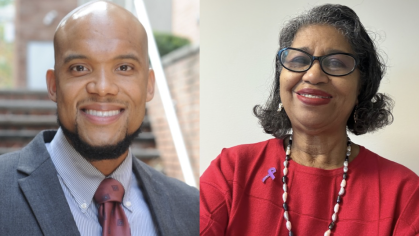Christine Chapais is an Assistant Professor of Teaching & Director of Online MSW Programs at Rutgers School of Social Work. We had the chance to speak with her about Autism Awareness Month and how social workers can support individuals with autism well beyond this month.
Tell us a bit about your journey to social work.
I have always been outspoken and drawn to helping others. My path to social work was not linear. I started in the performing arts and always gravitated toward roles and productions that told stories of resilience or challenged audiences to think critically about the world around them. Before becoming a social worker, I worked as a legal assistant in a criminal defense law firm, where I witnessed how poverty, racism, mental health, and trauma intersected with people’s involvement in the criminal justice system. Wanting to do more than just observe these challenges, I made the decision to get my MSW. That choice, along with my experiences as a licensed social worker, reinforced my passion and motivated me to pursue a DSW. As a social work educator, I am honored to prepare future social workers to work toward meaningful, systemic change.
What is the significance of Autism Awareness Month for you?
Autism Awareness Month is an opportunity to educate, advocate, and take meaningful action. In addition to awareness, it is about acceptance, celebrating neurodiversity, and recognizing that autism exists on a spectrum, with each individual having their own strengths, challenges, and lived experiences. On a personal level, I have been connected to the autism community in multiple ways. Growing up, my sister worked as a teacher’s aide at a school for children with autism, where she met my brother-in-law, a behavioral therapist specializing in autism. On numerous occasions, I provided respite care for some of the families at their school. As a social worker, I have worked with autistic clients in schools, inpatient care, and outpatient settings, all of which have deepened my understanding of the diverse ways autism presents and the importance of cultural humility and person-centered care. This month serves as a reminder to promote acceptance, reduce stigma, advance equity, build connection, and ensure people with autism have access to the resources, accommodations, and opportunities they deserve. It is also a time to celebrate the incredible strengths and contributions that people with autism bring to our communities.
How can the social work community recognize and commemorate Autism Awareness Month?
As professionals committed to social justice and equity, social workers are in the perfect position to take awareness to the next level: action. This begins with challenging misconceptions about autism and recognizing it as a spectrum, marked by diverse experiences. We must uplift autistic voices and ensure that their perspectives are centered in conversations about policy and practice. This also means committing to neurodiversity-affirming, strengths-based approaches rather than deficit-based frameworks. Autism Awareness Month is the perfect time to reflect, share, and educate, and it should also serve as the starting point or a rededication toward ongoing, year-round work centered on equity and inclusion for the autism community.
What can the social work profession or social workers do to continue to support individuals with autism beyond this month?
Supporting autistic individuals does not stop when April ends. It has to be part of our ongoing commitment as social workers. This means advocating for inclusive policies across education, healthcare, employment, and beyond. It also includes staying aware and advocating against current threats that could jeopardize disability rights and access to needed supports. These policy shifts risk worsening disparities and limiting access to essential services for autistic individuals and their families.
We need to keep showing up by pushing for policies that center equity and by creating spaces that are designed with neurodivergent people in mind. That includes thinking about sensory needs, communication differences, and processing styles in the services we offer, and the systems we help shape. Our role is to support, not just with services but also with a deep commitment to listening and learning.
This story was created in partnership with Rutgers School of Social Work's Inclusion, Intersectionality, Diversity, Equity, and Advancement (IIDEA) Committee.



